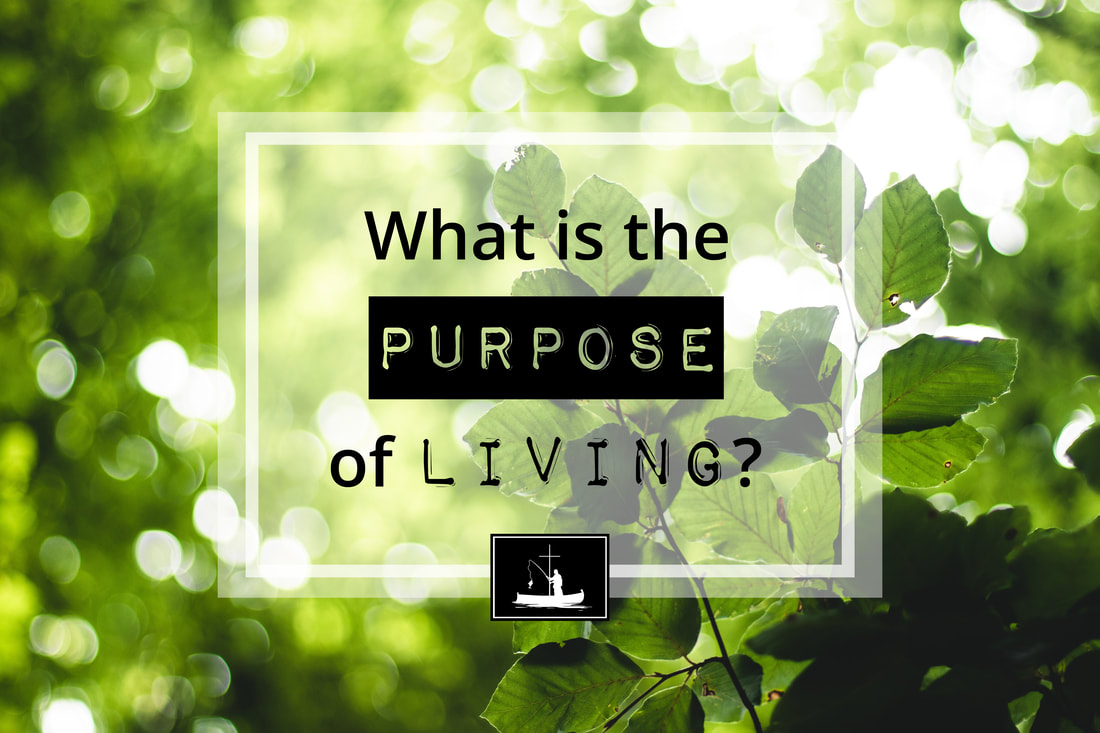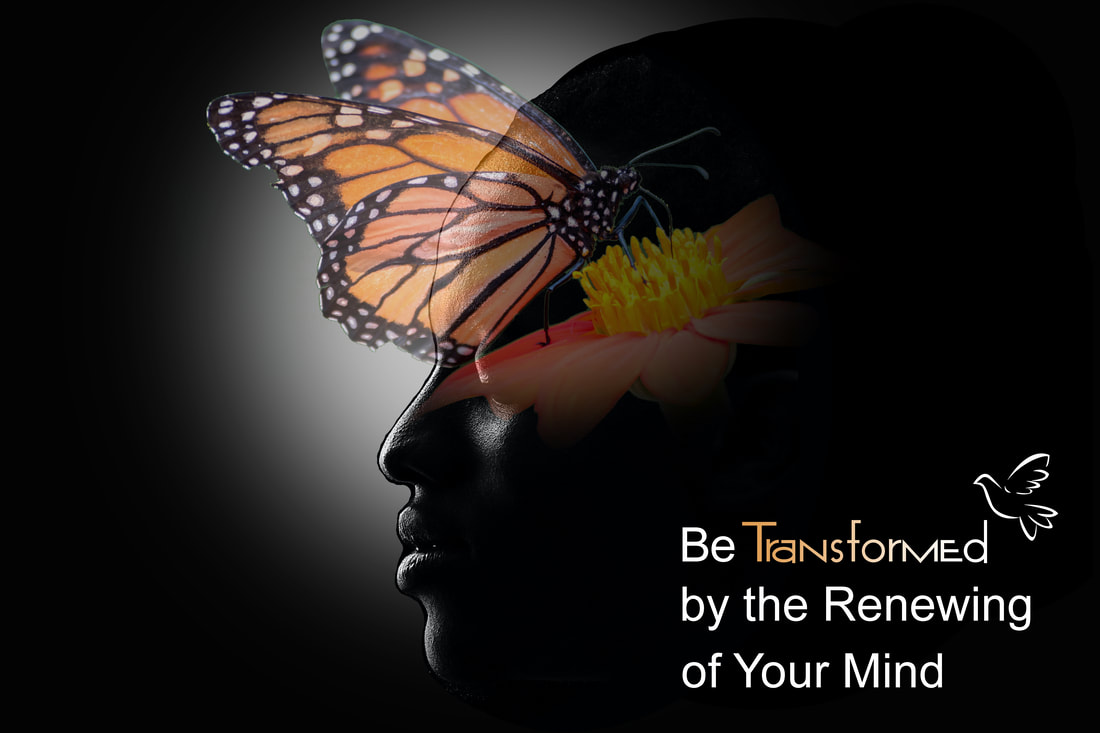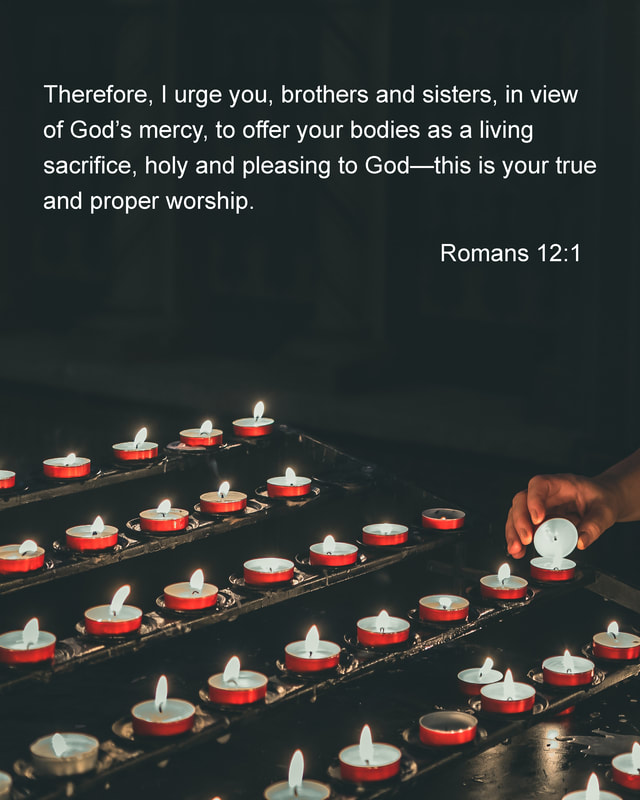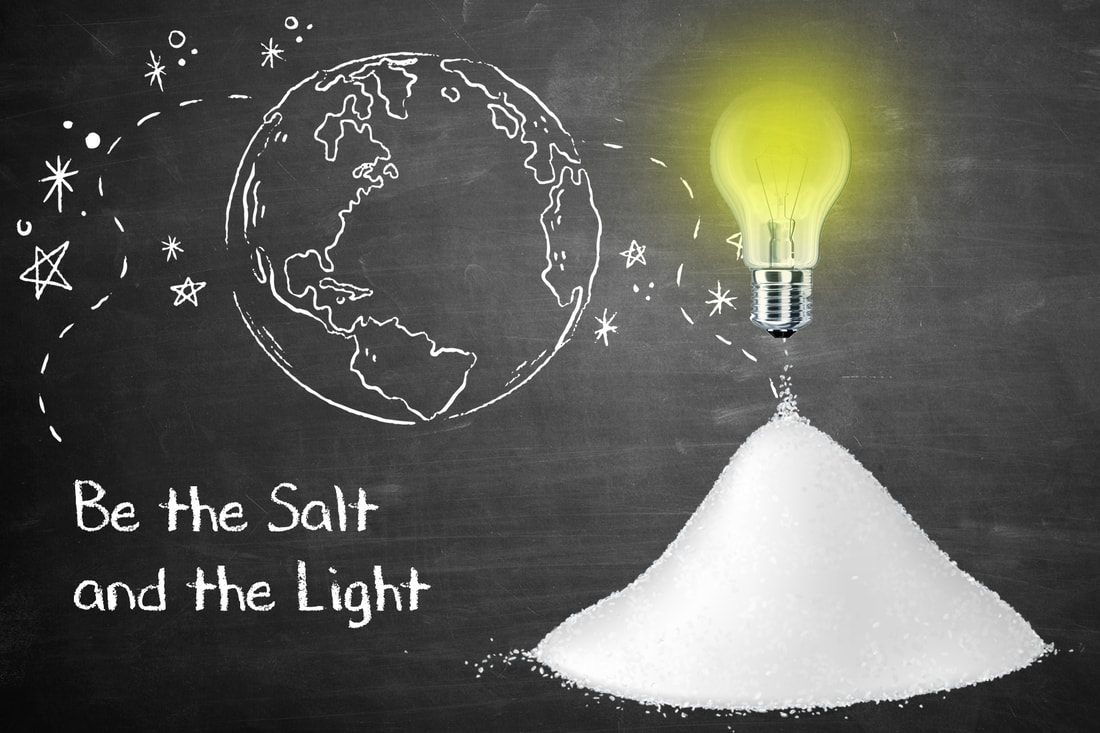|
A 鮑維均 Sermon Summary Many imagine heaven filled with things they love, such as wonderful entertainment, gourmet food, and vibrant health. But the Bible teaches otherwise. In Revelation’s new heaven and earth, the holy place, God lives with His people, as He did in the Garden of Eden[1]. Both Eden and the new heaven and earth have rivers and trees. The New Testament represents Christ as living water, continually quenching our thirst, and a true vine. We must be grafted to Him to bear fruit. He is the temple, the holy place[2]. Through Christ, God lives with us. Furthermore, God’s glory brightens the new heaven and earth. It is a place of purity, like clear-as-crystal jewel and pure-as-transparent-glass gold[3]. Humans there are sinless, purified by Christ’s blood[4]. The key activity in the holy place is to worship God[5]. Today, we tend to revere the rich and the famous. Caesar once had a powerful empire, yet Christians worshipped the invisible Christ as Lord, not Caesar. Earthly things are transient and can’t fulfill our real needs[6]. Today, we see good people suffer and evil people prosper[7]. Yet Christians should trust our sovereign God and His long-term plan to reward the good and punish the wicked[8]. To Christians, the real reality should be the invisible Lord, who created and rules over all things. And we should worship Him[9]. So, until that new heaven and earth are established, how should Christians live now? Our Holy God requires us to lead a pure life through Christ[10]. Among sins, one of the worst is lying[11]. John described Satan as the father of lies[12]. Liars’ actions and words don’t match. They may call God their Lord and friend, while walking in darkness[13]. Have we lied? Do we worship the invisible God, or the visible world? Do we love Christ?[14] Revelation ends with asking Christ to come[15]. Do we genuinely have the same wish? Summary of a sermon by 鮑維均, titled “Beyond the End of Time”: https://www.youtube.com/watch?v=9gWlq-OvVJU [1] Revelation 22:1-4, Genesis 2:15
[2] John 2:21, 4:10-14, 15:1-5 [3] Revelation 21:11, 21, 23-25; 22:5 [4] Revelation 4, 5 [5] Revelation 4:11, 5:14, 7:11 [6] Revelation 13, 18 [7] Psalm 73:3-5 [8] Psalm 1:3-6 [9] Revelation 4:11, 5:14, 7:11 [10] Revelation 2:5, 2:16, 3:11, 14:7, 16:15, 22:12 [11] Revelation 21:8, 21:27, 22:15 [12] John 8:44 [13] 1 John 1:6-8 [14] 1 Corinthians 16:22 [15] Revelation 22:20
0 Comments
Many of us believe happiness depends on getting something, but once we acquire it, we don’t feel satisfied. Many of us, for whatever reason, have a public self very different from our private self, and such a contradiction makes us feel lonely. Why do we do this? What’s the point of life? According to King Solomon, one must understand four things in order to live a meaningful life (Ecclesiastes 9:1-10). First, we must understand that we don’t know what tomorrow will bring (Ecclesiastes 9:1, James 4:13-14). Today’s lovers can be tomorrow’s enemies. Nothing on earth can give us security. Second, we must recognize that one day we will die (Ecclesiastes 9:2-3). Contemplating and preparing for death will help us live more vibrantly today. Third, we should know that our hearts are filled with evil and insanity (Ecclesiastes 9:3). Our sins separate us from others and God. In addition, many don’t want God and believe they don’t need Him. Separated from others and from God, they feel emptiness. Christians accept their wickedness and their need for God. They ask God to pay for their sins with the blood of Christ, thus reuniting themselves with God. Fourth, know that as long as one is alive, one still has hope (Ecclesiastes 9:4-5). History shows us that our world is without justice and fairness. Gaining the world is not worth losing one’s life (Matthew 16:26). Without Christ paying for sins, life is hopeless. But if we accept Christ as our savior today, His death and resurrection will reunite us with God, and we will be transformed at least in the following ways. First, we will accept God as our Lord. Everything we have is from God and belongs to Him. We are just custodians, managing whatever God gives us. Whatever situation we are in, we give thanks to Him (Ecclesiastes 9:6-7, 1Thessalonians 5:16-18). Second, live a pure life, including in sex (Ecclesiastes 9:8-9). Love and enjoy life with our spouse, for this is what we have. Third, do things wholeheartedly, and don’t vacillate once decided. (Ecclesiastes 9:10). If you die today, would you consider you have lived a good life, fought a worthwhile battle? Would you have a sense of accomplishment, or would you be filled with regrets? Whether you decide to accept or reject Christ is your choice. Make a wise decision. Earnestly pray to God. 人生的目的是什么?
许多人认为快乐依赖于得到某些东西, 但是一旦获得却又感到不满意。 出于各种的原因,许多人私下的一面与公开的一面截然不同, 他们因为陷在这种矛盾中而感到孤独。 为什么要这样做呢? 人生的意义在哪里? 所罗门王认为想过有意义的生活,需要明白四件事(传道书 9:1-10)。 首先,明白我们不知道明天会怎样(传道书 9:1,雅各书 4:13-14)。 今天的爱人可能是明天的敌人。 世上没有什么能带给我们安全。 第二,明白死亡总有一天要临到(传道书 9:2-3)。 思考死亡并为之做好准备,如此将帮助今天更有活力地生活. 第三,明白人心充满了邪恶和疯狂(传道书 9:3)。罪使我们与人和上帝隔绝。 此外,许多人不想要上帝,并且相信不需要祂。 因为与人和上帝分离,人就感到空虚。 基督徒承认自己的邪恶和对上帝的需要,祈求上帝用基督的宝血偿还他们的罪孽,从而使他们与上帝再次相联。 第四,明白只要还活着,就仍然有希望(传道书 9:4-5)。 历史告诉我们世界没有正义和公平。 赢得世界而失去生命是不值得的(马太福音16:26)。 如果没有基督为罪付出代价,生活就毫无盼望。 但今天如果接受基督为救主,基督的死和复活将使我们与上帝重新结合,生命就会被更新改变。 首先,我们会接受上帝为自己的主。 我们所拥有的一切都来自上帝,属于上帝, 我们只是保管人,管理上帝赐给的一切。 无论处于什么情况,都感谢上帝(传道书 9:6-7,帖撒罗尼迦前书 5:16-18)。 第二,我们会生活纯洁,包括在性方面(传道书 9:8-9)。 爱我们的配偶,享受与配偶一起的生活,因为这是我们所拥有的。 第三,全心全意地去做事,一旦决定就不动摇(传道书 9:10)。 如果你今天就离开世界,你会认为活出过美好的生活,打过一场值得的仗吗? 你会感到有成就,还是充满遗憾? 无论你决定接受还是拒绝基督,这是你的选择。 做出明智的决定, 恳切地向神祷告吧。 Have a mindset shaped by the following five realities (Colossians 3:1-4).
First is the existence of God (Colossians 3:1, 3). He is not an imaginary idea to encourage you to be good. He is self-existing. He created all things and holds creation together (Colossians 1:15-17). Second, Christ, above all creation, sits at the Father’s right hand after accomplishing the salvation work (1 Peter 3:22, Hebrews 1:3, Colossians 3:1). Christ is God and also works for the Father. Furthermore, Christ intercedes for us before God (Romans 8:34). Third, the worst is over. United with Christ, we have passed from death to life. Baptism signifies our death, burial, and resurrection with Christ through faith (Colossians 2:12, 1 John 3:14). But our glorious life is hidden with Christ in God (Colossians 3:1,3). We can’t see and taste our true life (2 Corinthians 4:4). Currently, we live in pain, frustration, and uncertainty. We need to walk by faith, not by sight (2 Corinthians 5:7). Fourth, Christ is going to appear (Colossians 3:4). Though currently hidden, He controls this world. One day, Christ will return gloriously (Titus 2:13-14). Fifth, one day, our hiddenness will be over. We will appear with Christ in glory (Colossians 3:4). Few will see our good deeds and give glory to our Father in heaven (Matthew 5:16), as few saw Christ’s during His time on earth. But one day, we will come out from hiding; we will look like God, shining like the sun! These five realities are of things above, and we should shape our mindsets and desires by them (Colossians 3:2, Philippians 2:4-5). To be shaped by these realities, we need to actively seek them, though we already have them! You are already dead, but you still seek to die. You are already risen, but you still seek to be raised (Colossians 3:1, 3). The seeking that succeeds is by those who already have them. Don’t waste your life. These five realities are found in God’s word, the Bible. Meditate on them and treasure them. May the Holy Spirit help us so that we are shaped by these five realities. Summary of a sermon by John Piper: https://www.youtube.com/watch?v=5nRYyl6V4uk 寻求天上的事 信徒当拥有被以下五个现实来塑造的心态(歌罗西书 3:1-4)。 第一个现实是上帝的存在(歌罗西书 3:1, 3)。 祂不是一个虚构出来的理念使你做一个好人。 祂是自有永有的。 祂创造了万有,并且万有都是靠祂而立(歌罗西书 1:15-17)。 其次,基督在所有受造物之上,完成拯救大工之后,坐在父神的右边(彼得前书 3:22,希伯来书 1:3,歌罗西书 3:1)。 基督是神,也为父神作工, 并且在父神面前为人代求(罗马书 8:34)。 第三,最坏的时间已经过去。 与基督联合的人已经出死入生。 洗礼象征因信与祂一同受死、埋葬和复活(歌罗西书 2:12,约翰一书 3:14)。 但信徒荣耀的生命与基督一同隐藏在上帝里面(歌罗西书 3:1,3)。 不信之人看不到,也尝不到真正的生命(哥林多后书 4:4)。 我们现在生活在痛苦、沮丧和对未来的不确定之中。 行事为人需要凭信心,而不是凭眼见(哥林多后书 5:7)。 第四,基督将要显现(歌罗西书 3:4)。 祂虽然目前是隐藏的,却掌控着这世界。 基督有一天将在荣耀中再来(提多书 2:13-14)。 第五,信徒的隐藏有一天会结束, 将在荣耀中与基督一同显现(歌罗西书 3:4)。 今天很少有人因为看到信徒的善行就将荣耀归给他们在天上的父(马太福音 5:16),就像当年很少有人看到基督在世时的善行一样。 但有一天,他们会从隐藏中走出来; 那时他们将像上帝,如同太阳一样闪耀发光! 以上这五个现实都是关乎天上的事,信徒的心态和心愿都应该藉着这五个现实来塑造(歌罗西书 3:2,腓立比书 2:4-5)。 要被这些现实塑造 ,需要积极主动地寻求它们。 但要意识到信徒已经有了它们。 你已经死了,但你仍然要寻求死; 你已经复活了,但你仍然要寻求复活(歌罗西书 3:1,3)。 唯一成功的寻求是那些已经拥有它们的人。 不要浪费你的生命。 这五个现实都在上帝的圣言里, 都在圣经中可以 找到。 默想它们,并珍藏它们。 愿圣灵帮助你,使你被这五个现实所塑造。 Romans 12:1-2 teaches us to offer ourselves to God, which pleases Him. Our lives become an act of worship, showing that God is much more valuable than anything on earth. Also, continually renew our mind, though we are new through Christ already (Colossians 3:10, 2 Corinthians 5:17). This is similar to the teaching of getting rid of yeast from the bread without yeast (1 Corinthians 5:7). Then we will know and be satisfied of God’s will.
Note that the will of God has two meanings. One is His sovereign will that’s going to happen no matter what. Such could involve someone sinning. For example, Christ’s crucifixion was God’s plan (Matthew 26:39). For such predestined events to occur, Herod and others had to murder Christ (Acts 4:27-28). Ultimately, it will be for the good. His sovereign plans always happen (Ephesians 1:11, Matthew 10:29, Proverbs 16: 33). Another meaning of God’s will is what God wants us to do and to be (Matthew 7:21, 1 Thessalonians 4:3). Whoever does the will of God lives forever (1 John 2:17). But many of us don’t, causing lots of pain and suffering. God hates evil behavior, and we need to believe God is sovereign. Ultimately, the evil behaviors are for the good. In the case of Romans 12:2, to know God’s will is to know what God wants us to be and do, to get our minds renewed so we know what God wants from us; but not to know His sovereign will so we can predict the future. Renewing our minds requires reading the Bible and learning how to live and do every good work (2 Timothy 3:16). For things not taught in the Bible, renewing our minds requires praying and asking God to enlighten us so we can infer from the Bible’s teachings on such things. Renewing our minds also requires us to be transformed because most of our actions are instinctive. So, ask the Holy Spirit to renew and continually transform us (Ephesians 4:23-24, Titus 3:5, Psalm 51:10, 2 Corinthians 3:18). If we ask, God will do it (Matthew 7:9-11). Then we will know God’s will and follow Him spontaneously. Summary of a sermon by John Piper: https://www.youtube.com/watch?v=yIOgYPkNA7g 如何知道上帝的旨意 罗马书 12:1-2 教导我们将身体献给上帝,这是上帝所喜悦的。当让我们的生命成为敬拜,显示上帝比地上任何其它事物都更有价值。 此外,尽管已经藉着基督成为新造的人, 我们的思想需要不断地更新(歌罗西书 3:10, 哥林多后书 5:17),就像圣经教导从无酵饼中去除酵母一样(哥林多前书 5:7)。 如此,我们就会知道并且以上帝的旨意为满足。 请注意上帝的旨意有两个不同的含义。 第一个是指祂至高无上的旨意,没有任何人事能够拦阻它的发生。这可能涉及某人犯罪。例如,基督被钉十字架是上帝的计划(马太福音 26:39)。为了使这预定的事件发生,希律和其他人不得不谋害基督(使徒行传 4:27-28),而这最终都是有益的。万事都按照祂主权的旨意发生(以弗所书 1:11,马太福音 10:29,箴言 16:33)。 上帝旨意的另一个含义是祂要我们如何行事为人(马太福音 7:21, 帖撒罗尼迦前书 4:3)。遵行神旨意的人将永远存活(约翰一书 2:17)。 但是,我们许多人不这样做,为人为己带来很多痛苦和苦难。 上帝恨恶邪恶的行为,我们需要相信上帝是至高无上的, 最终邪恶的行为都可以为上帝的良善使用。 就罗马书 12 章 2 节而言,知道上帝的旨意就是明白祂要我们如何为人处事,就是要更新心意,明白祂的期望, 而不是明白祂至高无上的旨意,使我们能预测未来。 心意更新需要通过阅读圣经并学习如何生活和做好每一件善事来实现(提摩太后书 3:16)。 对于圣经没有直接教导的事,心意更新需要祷告,求上帝开启我们的心,使我们可以从圣经的教导中推断出祂的旨意。 心意更新也需要自己被改变,因为人大部分的行为都是靠直觉。 所以,祈求圣灵不断更新改变我们(以弗所书 4:23-24,提多书 3:5,诗篇 51:10,哥林多后书 3:18)。我们如果祈求,上帝就会如此行(马太福音 7:9-11),这样我们就会知道上帝的旨意,自然而然地遵循祂的心意。 What is the purpose of your short life on earth?
First, know that our amazing God wants to be known as Yahweh, which means “I am,” with no beginning and no end (Exodus 3:14). He created the universe, including us, to display His glory (Isaiah 43:6-7, 48:9; Psalm 106:7-8, 19:1; John 17:1; 2 Thessalonians 1:10). His name should be honored through us (the Lord’s Prayer). God wants us to know Him and reflect His glory (Romans 9:22-23). If we treasure, enjoy, and honor Him over everything on earth, we will reflect how valuable He is. When we are most satisfied in God, He will be greatly glorified by us. However, we inherently hate Him and want to be in His position. Self-denial is not naturally in our bones. For that, we deserve His wrath (Ephesian 2:3). Christ overcame this major obstacle. He was crucified to cover God’s wrath and become a curse for us (Romans 8:3, Galatians 3:13). Faith, repentance (Ephesians 2:8, 2 Timothy 2:25), new birth (John 3:8), and Christ Himself (John 6:44) are freely given to us. We can love and praise God and let God be our center. This is the glorious grace from God given to us before the world existed (Ephesians 1:5-6, 2 Corinthians 4:4, 2 Timothy 1:9, Revelation 13:8). An unwasted life shows Christ as more precious and satisfying than life itself. An unwasted life considers everything is rubbish compared to knowing Him (Philippians 3:8). If we suffer because of Him but we are still joyful, then we can clearly show Christ being most precious. If we can rejoice even when someone persecute us for being the salt and light of this world, then we will show we treasure Christ more than anything on earth (Matthew 5:11-16). Then we will show we are most satisfied in Him, and we consider seeing His glory as our ultimate reward (John 17:24). And our life will not be wasted. Summary of a sermon by John Piper: https://www.youtube.com/watch?v=JHdB1dYAteA 不要浪费生命 我们在地上短暂生命的目的是什么呢? 首先,要知道奇妙的上帝希望我们认识祂是耶和华,就是“我是”的意思. 祂没有开始,也没有结束(出埃及记 3:14)。 祂创造宇宙(包括我们)之目的乃是显示祂的荣耀(以赛亚书 43:6-7, 48:9; 诗篇 106:7-8,19:1; 约翰福音 17:1; 帖撒罗尼迦后书 1:10)。祂的名应该受到尊崇(主祷文)。 上帝要我们认识祂,反映祂的荣耀(罗马书 9:22-23)。 如果我们珍视、享受和尊崇祂胜过世上的一切,就会反映出祂是何等宝贵。 当我们在上帝里面最满足时, 祂就在我们身上得到大大的荣耀。 但我们生来就恨上帝, 并且想站有祂的位置。 舍己不是我们的天性。 因此,祂的愤怒临到我们身上(以弗所书 2:3)。 基督战胜了这个主要的障碍。 祂被钉在十字架上以掩盖上帝的忿怒, 为我们成为诅咒(罗马书 8:3,加拉太书 3:13)。 上帝将信心、 悔改、 重生和基督自己都白白地赐给了我们(以弗所书 2:8, 提摩太后书 2:25,约翰福音 3:8,约翰福音 6:44)。 我们可以热爱和赞美上帝, 可以让祂成为生命的中心。 这是世界存在之前上帝就赐给我们的荣耀恩典(以弗所书1:5-6,哥林多后书4:4, 提摩太后书1:9,启示录13:8)。 没有虚度的生命表明基督比生命本身更宝贵, 更令人满足。 没有虚度的生命以万有为垃圾, 惟有认识基督是至宝(腓立比书 3:8)。 如果我们为基督受苦仍可喜乐, 便能清楚地表明基督为最宝贵。 如果我们因为是世界的盐和光而受到迫害仍欢欣鼓舞, 就表明珍视基督胜过世上一切(马太福音 5:11-16)。 如此也就表明我们在祂里面最满足, 将得见祂的荣耀视为最终奖赏(约翰福音 17:24). 如此我们的生命也就不被浪费。 God never created anything without a purpose. That includes you.
We are made by Him and for Him to last forever, with life on earth preparing for our eternity (Ephesians 1:11-12, Colossians 1:16, Revelation 4:11). On Earth, we have five purposes. 1. To know and love Him. God made us for His pleasure, so it is important to know God (Hosea 6:6, 1Timothy 6:21). He gets pleasure in us and loves to love us (Psalm 149:4, Ephesians 1:4). So, don’t worry. Otherwise, we act as God doesn’t exist (Matthew 6:32). 2. To love others. God wants a family and wants us to be in His family (Ephesians 1:5, 1Timothy 3:15b, Romans 12:5). This is the spiritual family, the everlasting church (1Peter 1:3). God made us to love our spiritual family (1Peter 2:17), which trains us how to love others. This includes unlovely people around us. 3. To become more like Christ. God wants us to think and act like Christ, and to bear the fruit of the Spirit (Romans 8:29, Colossians 1:15, Philippians 2:5, Galatians 5:22-23). Our accomplishments are far less important than the person we become, which is the only thing we take to the other side after death. We need to grow spiritually and realize that things are not about us. This requires life-long training, typically through experiencing and patiently learning from difficulties (Mark 4:17, 2Corinthians 3:18). 4. To serve God by serving others. We are designed to serve God by serving others (1Peter 4:10), including the undeserving. Do good work to serve others based on our uniqueness (Ephesian 2:10), including spiritually, in our passion, abilities, personalities, and experiences (Psalm 139:13). 5. To fulfill a mission. God puts us here for a mission (John 17:18, Acts 20:24) based on what He gives us. Don’t follow your own small plan, but follow His big plan for us, a plan for a far better life, for a purpose that will last forever (2Corinthians 5:15, Proverbs 19:21). Open your eyes to see how good God is (Psalm 34:8) and receive the immense love of God. Live for Him and His kingdom. That should be the purpose of your life. Become what God made us to be. Live restfully, freely, and lightly a life that God has created for you (Matthew 11:28-30). This offer is available to all of us (Acts 10:35). Summary of a sermon by Rick Warren, “If I Could Only Teach You One Thing: Why God Made You.” https://www.youtube.com/watch?v=d5xyYI9tNV8 上帝为何创造你? 上帝的任何创造都有目的,包括你。 我们被祂而造,也为祂而造,而且存到永远(以弗所书 1:11-12,歌罗西书 1:16)。 我们地上的生命正在为我们的永恒做准备。 我们在地上有五个目的。 1.认识祂并且爱祂 上帝为了祂的喜悦创造我们,所以认识祂很重要(何西阿书 6:6,提摩太前书 6:21)。 祂以我们为乐,并且喜悦爱我们(启示录 4:11,诗篇 149:4,以弗所书 1:4), 所以不要忧虑。否则,我们行事为人就活得像上帝不存在一样(马太福音 6:32)。 2.爱他人 上帝渴望要一个家庭,并希望我们成为其中的成员(以弗所书 1:5,提摩太前书 3:15下,罗马书 12:5)。这是属灵的家庭,那永远存在的教会(彼得前书 1:3)。 上帝创造我们来爱这属灵之家(彼得前书 2:17),要训练我们去爱他人,包括周围那些不可爱的人。 3. 变得更像基督 上帝希望我们的思想行为像基督,结出圣灵的果子(罗马书 8:29,歌罗西书 1:15,腓立比书 2:5,加拉太书 5:22-23)。 成为什么样的人比作出什么样的成就更重要,这是我们离开世界后唯一能带到来世的东西。 我们需要灵命成长,明白自己并非万事万物的中心。这一切需要终生的训练,通常是经历困难并耐心地从中学习(马可福音 4:17,哥林多前书 3:18)。 4. 通过服事他人来服事祂 上帝的设计是要我们通过服事他人来服事祂(彼得前书 4:10),包括服事那些不配的人。 当使用我们在热情、能力、个性和经验上的特性, 包括属灵的恩赐(以弗所书 2:10), 来多做善工,服务他人(诗篇 139:13)。 5.完成使命 上帝把我们放在世上,为要让我们用祂所賜的一切去完成祂的使命(约翰福音 17:18,使徒行传 20:24)。 不要遵循自己的小计划,而要遵循祂为我们制定的大计划,一个更美好生活的计划,去追求一个永远的目标(哥林多前书 5:15, 箴言 19:21)。 睁开我们的眼睛,看看上帝何等美善(诗篇 34:8),接受上帝的大爱,为祂和祂的国度而活,这应该是我们人生的目的。 让自己成为上帝创造我们要成的样式, 过一种上帝为我们创造的安息、自由、轻省的生活(马太福音 11:28-30),这是祂为所有人预备的(使徒行传 10:35)。 Time is precious. Once gone, it can’t be recovered, and we are never guaranteed more of it. Though we see no signs of approaching death, today may be our last (Job 16:22, 9:25-26; James 4:14). Nothing is more precious than time, and yet we waste it like nothing else.
Don’t waste time because God is near (Isaiah 55:6, 2 Corinthians 6:2). Don’t waste time on meaningless or useless things. Don’t be lazy and merely talk, having nothing to share with those in need. (Proverbs 19:15, 23:21, 14:23, 18:9; Ephesians 4:28). Don’t spend time on evil things, hurting yourself and others, increasing eternal misery and damnation. Don’t spend time only in worldly pursuits, neglecting your soul and eternity. What do we really gain from pursuing the world? This time is for the eternity that follows it. Our welfare depends on how wisely we use our time. Have we filled our time with eternal good? We are accountable to God for our words, deeds, and how we have used our time, because we are God’s servants (Matthew 12:36). When God asks for an account of our time, what can we give? Have we made the best use of it for God and for our soul? So, hasten and don’t delay obeying God (Psalm 119:60). Make the most of our opportunities, particularly those more important for our eternal life. This includes Sunday public worship in communion with God and His words. We should use time not just for ourselves, but also to rescue others from their evil ways. So, God may defer anger, allowing such people to be redeemed from destruction. Work is good, but so is rest and recreation. Use them to refresh for the work you are called to do. In any case, we may have already wasted a lot of our time. As we get older, our opportunity, availability, and ability to do good diminish. It will be too late if our eyes are finally opened on our death beds. Even worse, if after death we end up in the fire of hell, then we will be left only with sorrow and regrets. Whether we are young or old, we should diligently redeem time. Make the most of every opportunity (Ephesians 5:16). Use time to prepare for our eternity. Beware that the day of judgment is coming soon (Revelation 10:5-6). Summary of a sermon by Jonathan Edwards: https://www.youtube.com/watch?v=Mt6XUf5ikfQ 赎回时间 时间宝贵,一去不复返。 无人能确定自己还有明天。虽然没有看到死亡濒临的迹象,但今天可能就是最后的一天 (约伯记 16:22, 9:25-26; 雅各书 4:14). 没有什么比时间更为宝贵,然而浪费最多的就是时间。 不要浪费现今的时光, 亲近上帝吧,因为我们能与祂相近 (以赛亚书 55:6, 哥林多后书 6:2)。 不要把时间浪费在无意义或无用之处。 不要懒惰,不要嘴上多言浪费时间,以致没有什么可以与有需要的人分享 (箴言 19:15, 23:21, 14:23, 18:9; 以弗所书 4:28)。 不要把时间花在邪恶的事情上:不要伤人害己为自己增加永恒的痛苦和诅咒。 不要只把时间花在世俗的追求上而忽视自己的灵魂和永恒。从世俗追求中真正得到什么呢?如今的时光当为以后的永恒来准备。 人的福祉取决于如何智慧地使用时间。将时间投资倾注在永恒的事物上了吗? 每个人都要为自己的言行和如何利用时间向上帝负责,因为我们是祂的仆人 (马太福音 12:36)。当上帝要求对过去的时间交代时,如何回答呢?是否为了上帝和自己的灵魂充分地利用好时间呢? 所以要快快地遵守上帝的命令,不要再拖延 (诗篇 119:60)。充分利用现今宝贵的机会,尤其那些对自己永生更为重要的机会,包括与上帝和祂的话语相交的主日敬拜。 不仅将时间用于自己身上,还应该用时间将他人从邪恶中拯救出来。 这样上帝就可以延迟祂的忿怒,使这些人有机会从毁灭中得到救赎。 工作固然是一件美事,但也需要休息和娱乐。 让休息和娱乐使我们重新得力,去做蒙召要做的事。 可能已经浪费了很多时间. 随着年龄增长,每个人的机会、可用的时间和作善工的能力也不断地减少。 如果在临终前才睁开眼睛领会明白那就太晚了。更糟糕的是如果死后最终落入地狱之火中,剩下的只有永远的悲伤和遗憾了。 因此无论年轻还是年老,殷勤努力地赎回时间吧。 当爱惜光阴,利用尚存的时间为永恒作准备(以弗所书 5:16)。留心审判的日子即将来临 (启示录 10:5-6)。 What does it mean to offer ourselves to God, as stated in Romans 12:1?
The Old Testament instructed the Jews to give 10 percent to support the Levites. The New Testament does not teach tithing. Instead, the New Testament teaches that we should offer our whole bodies to God, in view of God’s mercy (Romans 12:1). God has given us so much. Our body was bought by God at a great price. It is also the house of the Holy Spirit, received from our heavenly Father (1 Corinthians 6:19-20). We should present our bodies to God, repent from our past ignorance (Acts 17:30), and use our bodies to honor Him. This is our worship. Offering our bodies to God can be like the burnt offering in Leviticus 1, where an animal was cut up into pieces and offered to God. Now, we offer every part of our body as a living sacrifice, not a dead one. For example, give our eyes to God, instead of greedily yearning for other’s property, or looking at things God does not like. Our tongue is not our own anymore. Our ears should not be eagerly listening to gossip. Our hands should do things that honor God. We can make our bodies do what they should through the help of the Holy Spirit (1 Corinthians 9:27). We can remove bad habits and discipline ourselves. For example, we should control our appetite, instead of letting our appetite control us. Otherwise, we will live as enemies of Christ (Philippians 3:18-19). Fasting can get rid of intense passion for food and help us understand hunger. Similarly, keep sex within the limits that God has ordained (1 Corinthians 6:12-13). Peter asked Christ what they would get for giving up everything to follow Him. Christ seemed to respond they should not expect to get more than those who followed Him right before death (Matthew 19:21-20:16). Our heavenly Father has already given us His beloved Son so we can have everlasting life. Similarly, if we serve anyone in need, we do it for Christ (Matthew 25:34-40). Do not expect gratitude from them. To conclude, in view of God’s mercy, we should offer our whole bodies to God. Summarized from a sermon by Zac Poonen: https://www.youtube.com/watch?v=Ve4c5xSx1eU&feature=youtu.be 罗马书12章 罗马书12:1中所讲的将身体献给上帝是什么意思呢? 旧约教导什一奉献支持利未人。新约没有教导什一奉献, 而是教导在上帝的怜悯下将整个身体献给祂(罗马书12:1)。 上帝赐给信徒丰丰富富。信徒的身体是祂付出了极大的代价买赎回来的。 身体也是圣灵的殿, 从天父那里得到的 (哥林多前书6:19-20)。 应该将身体献给上帝, 从过去的无知中悔改 (使徒行传17:30),并且用身体尊荣上帝,这就是我们的敬拜。 将身体献给上帝就好像利未记一章中的献燔祭, 在那里动物被切成碎片献给上帝. 现在将身体的各部分作为活祭献给上帝. 例如当将目光投向上帝,不要贪婪地看着他人的所有,也不要看上帝不喜欢人所看的事物;舌头不再属于自己的;耳朵不应该急于听无聊的八卦新闻;并且手应该做荣耀上帝的事。 依靠圣灵使身体做該做的事 (哥林多前书9:27)。消除不良习惯,节制自律。当控制食欲,不被食欲所控制,否则就将成为基督的仇敌 (腓立比书3:18-19)。禁食可以消除对食物的嗜好,并帮助人了解饥饿。同样地,保持性行为在上帝规定的范围内 (哥林多前书6:12-13)。 彼得曾问基督放弃一切跟随祂将有何回报。 基督的回应似乎是不应指望得到比临死前才跟随祂的人更多 (马太福音19:21-20:16)。 天父已经赐下爱子基督,使人可以因信祂得永生。 同样地,如果服事有需要的人,就是为基督而做 (马太福音25:34-40)。不要期待人的回谢。 总而言之,在上帝的怜悯下将身体作为活祭献给祂吧。 Christ said that we are the salt and the light of the world (Matthew 5:13-16). What does that mean?
These days, we worry about salt causing high blood pressure. But historically, salt was pivotal to the development of civilization. Salt could preserve foods. So, salt enables distribution, allowing them to have different types of food all year round from different regions of the world. In addition, salt makes food taste good. Like salt, we should help people flourish and enhance human relationships. Light helps us see. We should put it high up so everyone in the house can see. Like light, we should let our good deeds shine before others. Then they may see them and glorify our Father in heaven (Matthew 5:16). Though we can be salt and light, others will still insult, persecute, and bear false witness against us (Matthew 5:11). Hopefully, these pains are not caused by our bad behavior or our trying to control others. If we suffer because of following Christ, then we should praise God (1 Peter 4:15-16). Christ, following the will of God the Father, came to Earth poor. He died on the cross to take away our curse and punishment. Because of Christ, we can be the blessed children of God, rich and fulfilled. In return, God the Father exalted Christ to the highest place. Billions of knees bow to Christ, and billions of tongues acknowledge Christ as Lord, to glorify God the Father (Philippians 2:9-11). Follow Christ. Be like salt and light. Help others so they may give glory to God. If persecuted because of Christ, rejoice because of your great reward in heaven (Matthew 5:11-12). Summarized from a Tim Keller sermon: http://www.gospelinlife.com/free-sermon-resource 世上的盐和光 基督说我们是世上的盐和光(马太福音5:13-16)。 这是什么意思呢? 现在人们担心盐会导致血压高,但从历史上看盐是人类文明发展的一个重要关键。盐可以保存食物,支持食品分销渠道,使人能够全年享用来自世界不同地区不同类型的食物。 此外盐也使食物味道佳美。 我们应该像盐一样,帮助人类蓬勃发展,增进人际关系。 光使人能看见。屋里的灯应该放在高处,使里面的每个人都能看见。像光一样,我们应将善行显现在人面前,让人看见就荣耀在天上的父(马太福音5:16)。 尽管我们可以是盐和光,但是其他人仍然可以辱骂、逼迫和捏造各样坏话毁谤我们 (马太福音5:11)。 希望这些痛苦不是因为坏行为或试图控制他人的结果。倘若因为跟随基督而受苦,就应该赞美上帝 (彼得前书4:15-16)。 基督遵循父神的旨意,成为贫穷来到地上,死在十字架上,带走诅咒和惩罚。因为基督的缘故,信徒成为上帝蒙福的儿女,生命丰盛。 父神因此将基督升到至高之处,让万膝敬拜,万口承认基督是主, 使父神得荣耀 (腓2:9-11)。 总而言之,跟随基督,做盐做光, 帮助他人, 使荣耀归与父神。如果因为基督受逼迫,就当欣喜,因为在天上有大赏赐为我们存留(马太福音5:11-12)。 Many consider life to be meaningless, full of despair and boredom, full of sound and fury, signifying nothing. To fill the emptiness, some pursue happiness but can’t find it. What does the Bible say about happiness? Let’s look at Psalm 1.
Verse 1 says that happiness is not illusory. We could be blessed now and filled with joy. Happiness depends on whom we hang out with or belong to. Do not hang out with the wicked and mockers, lest they own or control us (v1). They will not give us happiness. Constantly think about and delight in the messages of the Bible. Think about how Christ became a man and died for us so we could be reconciled to God (v2). Then like a tree planted by streams of water, we will yield seasonal fruits, and our leaves will never wither (v3). “Seasonal” implies there will be periods of cold and desolate winters. Bad things will happen. Evils exist. We will experience seasons of pain, suffering, and grief. But even in deep distress, we can still rejoice (1 Peter 1:6) because we are God’s children forever. God constantly upholds us. So, whether our life is easy or full of suffering, God should be our center. Happiness is always a byproduct of something else. Don’t seek it. If we focus on a happy marriage, we will not get it. Christ taught us not to worry. First seek what is important to Him and live as He wants us to. Then we will have happiness (Matthew 6:25-33). In conclusion, bad people cannot bring us happiness. Instead, center on God. Constantly meditate on the messages in the Bible. Then we will yield fruits in season and our leaves will not wither. Summarized from a Tim Keller’s sermon, titled, “Search for happiness”: https://www.youtube.com/watch?v=XuLlePKzNQA 想要幸福吗? 不要为它而活。 许多人认为生活毫无意义,充满绝望和无聊,虽然充斥各样声音和愤怒, 却仍然是虚无虚空。为了填补空虚,一些人追求幸福快乐,却找不到。圣经对此的看法是什么?请来看诗篇第一篇。 第一节说幸福不是虚幻的,现在就可以蒙福,充满喜乐。 幸福取决于与谁在一起或属于谁。不要与恶人和亵慢人一起,以免被他们拥有或控制,这些人不会带来快乐(诗篇1:1)。 不断思想圣经的信息,以之为喜乐。思想基督如何降世为人,并为世人而死,使人可以与上帝和好 (诗篇1:2)。喜爱思想主话语的人就像一棵樹栽在溪水旁边,按時候結果子,叶子永远不枯干(诗篇1:3)。 “按時候” 意味着会有寒冷荒凉的冬季。坏事会发生,邪恶确实存在,人都会经历痛苦和悲伤的季节。 然而即使在极度痛苦中仍然可以大大喜乐(彼得后书1:6),因为我们永远是上帝的儿女。上帝不断地托住我们。因此无论生活轻松容易或充满痛苦,上帝都当是我们的中心。 幸福总是伴随其它事物而来,不要刻意寻求它。如果单单专注于幸福的婚姻,反将无法得到它。基督教导信徒不要担忧,当首先寻求对基督重要之事,并按照祂的要求生活,后幸福快乐就会接踵而来 (马太福音6:25-33)。 总而言之,与坏人结伴就没有幸福。相反地,以上帝为中心,不断默想圣经中的信息,就将按時結果子,叶子也不枯干。 If someone wanted to meet us in San Francisco, we would ask, “Why?” Shouldn’t we also ask where we want to go in life? So why live? Why get up in the morning?
We exist for a very short time. Then we die and rot. Why does it matter whether one goes down hugging or mugging, kind or cruel? Does anything we do matter? Why even try to do anything? In Greek mythology, Sisyphus is cursed to an eternity of rolling a large boulder up a hill, only for it to roll back down. Some characterize hell as doing a pointless act, again and again, forever. Some believe in no god, no way to know god, no heaven, and no hell. Some also believe that there is no basis for wrong and right. If one assumes everything ending in nothing, then just following one’s own desire also does not give life any meaning. Some say that love, hate, and every emotion in us are just chemical reactions. But something inside tells us a human is different from a rock. Something inside tells us there is evil and good. Popcorn machines should not make turkey. A sailboat should not run down main street. If we want to live a full and satisfying life, we must know ourselves, learn our reason to exist, and follow it. According to Christianity, a designer designed and built the world. The designer came as a human being and lived among us, showing us His glory, grace, and truth. The designer loves us to the point of laying down His life for us (John 1:1-14). Our meaning in life is found in Christ, the designer of life. Know and love Christ. If we do so, we will “have life, and have it to the full” (John 10:10). Summarized from a Tim Keller’s sermon, titled, “Reason to live”: https://gospelinlife.com/downloads/a-reason-for-living-an-open-forum-8066/ 如果我们的生活没有意义? 如果有人想在旧金山见面,我们会问“为什么?” 那么,为何不问一问生命往哪里去?为什么要活着?为什么早上要起床? 人生在世短暂,然后就死去腐烂。既然如此,用双手拥抱或抢劫,为人善良或残忍, 两者之间还有分别吗?人所做的任何事情还有意义吗? 甚至为什么要尝试做任何事情?在希腊神话中,Sisyphus受到诅咒,每天都把一块巨石推上山,在几乎到达山顶之前那块巨石又滚下山坡来,如此循环往复,永无止尽。有人将地狱描述为必须永远一次又一次地做毫无意义的事。 有些人相信没有上帝,没有办法认识上帝,没有天堂,也没有地狱。有些人相信没有衡量是非对错的真理。 如果相信一切都是空虚, 遵循自己的愿望做事也不赋予生命任何意义。 有人说,爱恨以及所有其它的情绪都只是一个人身上的化学反应。 但内心深处有声音说人类与岩石不同,内心深处有良知讲世上有邪恶和善良。 爆米花机不应该用来烘烤火鸡,帆船不应沿着街道行驶。如果想要丰盛充实而心满意足的生活,必须认识自己,找出自我存在的理由,并遵循它而生活。 圣经启示有一位设计师设计并建造了这个世界。这位设计师成为一个人来到世人中间,展现祂的荣耀,恩典和真理。设计师爱世人至死,为人舍命十架 (约翰福音1:1-14)。 一个人生命的意义可以在基督这位生命的设计师中找到。 认识基督,热爱基督,如此行就会“得生命,並且得的更豐盛”(约翰福音10:10)。 Princess Diana and Mother Teresa died within days of each other. Mother Teresa is a hero we could learn from, but the outpouring of grief towards Diana far eclipsed that for Teresa. Some attributed this to people’s shallowness, but others found Diana to be more relatable and vulnerable. Some worship heroes and others distrust them. Let’s learn from Samson, a hero, in Judges 15:9-20.
Israel was at a dangerous time. Philistines were assimilating them (v11), and many Israelites liked to be ruled by them. God used Samson to create a conflict with the Philistines. Samson killed a number of Philistines, doing to them what they did to him. Three thousand Jews went to confront him because they didn’t want Samson to disrupt their peace. Samson made them agree not to kill him, but to hand him to the Philistines. Then, using the jawbone of an ass, he killed a thousand Philistines and made a joke out of it (v16). Through one man, God saved Israel from losing their faith and culture. Samson led Israel for 20 years as a judge—not judicially, but as a hero-warrior. As a Nazarene, Samson couldn’t cut his hair. When pressed by Delilah, he let her do it. Samson thought his strength guaranteed his success, but he didn’t know the Lord had left him (Judges 16:20). Then the Philistines seized Samson, gouged out his eyes, and humiliated him. Later, Samson trusted in God’s sovereignty again. With his death, Samson killed more Philistines than in his lifetime because he wanted to “get revenge on the Philistines for [his] two eyes” (Judges 16:28). One main purpose of Samson’s life was to get even. In a similar way, the Jews also rejected Christ and handed Him to the Romans. But unlike Samson, Christ follows God the Father. Christ didn’t leave heaps of dead bodies. Instead, Christ forgave them, and many later became His followers. Through His death, Christ destroyed the power of sin and brought salvation. Learn from Christ. Don’t trust your abilities but depend on what Christ has done for us. Summary of a sermon by Tim Keller, titled, “Observe Samson. Learn from Christ”: https://gospelinlife.com/downloads/the-strength-of-samson-6516/ 观察参孙,但向基督学习 戴安娜王妃和特蕾莎修女在几天内相继死亡。特蕾莎修女是人们学习的英雄,但哀悼戴安娜的人却远远超过哀悼特蕾莎的。有些人将此归于人性的浅薄,其他人则认为更容易与戴安娜认同,她的脆弱使人觉得更接近。 有些人崇拜英雄,而有些人则不信任他们。让我们一起来研读士师记 15:9-20中英雄参孙的故事。 当时以色列处于危险时刻。非利士人正在同化他们(士师记 15:11),许多以色列人也喜欢被非利士人统治。 上帝使用参孙使以色列人与非利士人发生冲突。 参孙以牙还牙,杀死了一些非利士人。三千名犹太人不想参孙破坏現有的平安,去以坦磐石的穴内找到他,参孙让这些人同意不杀死自己,而是将他交给非利士人。接着,参孙用驴腮骨杀死了一千多名非利士人,并作诗揶揄此事(士师记 15:16)。 上帝通过一个人,使以色列免于失去自己的信仰和文化。参孙作士师带领以色列二十年,不是作为一位司法者,而是一个英勇的战士。 参孙作为拿撒勒人是不能剪头发的。在大利拉多次施压后,参孙让她剪了自己的头发。参孙以为他总可以靠力大取胜,但不知道主已经离开他(士师记16:20)。非利士人抓住参孙,剜出他的眼睛,并羞辱他。 参孙再次信靠上帝的主权。他去世时杀死的非利士人比一生杀死的更多,因为他要报那剜他双眼的仇(士师记16:28)。参孙一生以复仇扯平为主要目标。 基督的故事一部分与此类似,犹太人也拒绝基督并将祂交给罗马人。基督与参孙其中之一的不同是祂一生跟随父神。基督没有留下敌人的尸体遍野。相反地,基督原谅了他们,当中很多人后来成为祂的追随者。通过祂的死,基督摧毁了罪的权势,为人类带来救恩。 总而言之,当向基督学习不要相信自己的能力,而要倚靠基督为我们所做的一切事。 Being down-to-earth with one’s feet on the ground is considered a good character trait. But Colossians 3:1-4 provides another point of view.
Many believe this world is all there is, and that when they die, there will be nothing left. Such belief leads some to focus entirely on their own worldly gain, ignoring right from wrong and raping the environment for treasures. Christians believe that the world is not all there is. Many epic stories start with ordinary people going through larger-than-life events. After prevailing in a great battle over an evil empire against all odds, they return home. They live confidently and freely. Nothing at home could ruffle them. To them, their home is not all there is. Following His Father’s will, Christ came to Earth, lived a pure life, suffered, died a horrible death, and was resurrected. Christ substituted Himself for us, and His death broke the power of Satan. We and Christ are one. We died with Him and have been raised with Him (v1, 3). Now when the Father looks at us, He sees Christ. We have the greatness and honor of Christ, and we have the love from the Father to Christ. When Christ returns, we will appear with Christ in glory as God’s children (v4). Since we and Christ are one, we have been through what Christ went through. We have been through Christ’s epic battle. After going through such tragic and glorious events with Christ, nothing on Earth can ruffle us. “If God is for us, who can be against us?” (Romans 8:31). There are wonderful things on Earth we cherish, but they do not dominate us or control us. Our life on Earth is not all there is. Focus on Christ. Constantly meditate on Christ and the Gospel. We must set our hearts and minds on things above (v1-2). This will help us live and do good on Earth with freedom and power. Summarized from a Tim Keller’s sermon, titled, “Set Out Hearts and Minds on Things Above”: https://gospelinlife.com/downloads/christ-our-life-7362/ 怎样才能在任何情况下保持冷静? 为人行事脚踏实地通常都被认为是很好的品格。歌罗西书第3章1-4节提供了另一个思考的角度。 许多人相信这个世界就是一切,人一死就什么都没有了。这种信念使一些人只完全关注自己世俗的利益,无视对错,破坏和摧残环境。基督徒相信这物质世界并非一切所有。 很多伟大卓绝的故事往往开端于普通人生活在艰辛患难中的磨炼与挣扎。例如有些大能的勇士在不可能的情况下打败了邪恶的帝国,经历了一场可怕的战争后,返回家乡,充满自信而自由地生活。在家乡没有什么可以扰乱或者激怒他们。对他们来说家乡已经不是一切。 基督遵循天父的旨意来到世上,过着纯洁的生活,多受痛苦,常经忧患,在十字架上忍受苦难,为世人受死,三天以后复活。基督是世人的代罪羔羊,祂的代死打破了撒但黑暗的权势. 我们与基督同为一体,与祂同死同复活 (歌罗西书3:1,3:3)。现在每当天父看见我们,祂就看见基督。基督的伟大和荣耀与我们同在,父神对基督的爱也临到我们。当基督再来时,上帝的儿女,将与基督一同在荣耀里显现(歌罗西书 3:4)。 既然我们与基督一体,就经历了祂所经历的, 包括那场史诗般的争战。与基督一起经历如此的悲壮和光荣后,地上的任何事都不能让我们沮丧, “上帝若帮助我们,谁能敌挡我们呢?”(罗马书8:31)。 珍惜地上美好的事物,但不被它们主宰或辖制。在世上的生活并非一切。定睛在基督身上,不住地默想基督和福音。 思念上面的事 (歌罗西书3:1-2)。如此,在世上就可以有力并自由地生活和行善。 |
Categories
All
|
Proudly powered by Weebly












